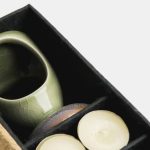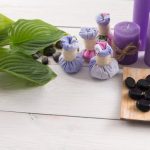Have you ever wondered what aromatherapy helps you sleep? Aromatherapy is the practice of using essential oils derived from plants to enhance physical and emotional well-being. When it comes to improving sleep quality, certain scents have been found to have calming and relaxing effects on the mind and body. In this article, we will explore the science behind aromatherapy and how it can be a natural remedy for those struggling with insomnia or restless nights.
Essential oils interact with the brain through the olfactory system, which plays a key role in regulating emotions, mood, and memory. When inhaled, these aromatic compounds stimulate areas of the brain that are responsible for inducing a sense of calm and relaxation. This makes them powerful tools for promoting better sleep by reducing stress and anxiety levels. Understanding how aromatherapy works at a physiological level can help us appreciate its benefits in creating a conducive environment for restful sleep.
One of the most popular essential oils known for its sleep-inducing properties is lavender. Its sweet floral scent has long been used to promote relaxation and ease insomnia.
Similarly, chamomile is another gentle yet powerful aroma that acts as a sedative to help lull both the mind and body into a state of tranquility before bedtime. By incorporating these scents into your nighttime routine, you can create a peaceful atmosphere that signals to your brain that it’s time to unwind and prepare for a restorative night’s sleep.
Understanding the Science Behind Aromatherapy
Aromatherapy has been recognized for its ability to enhance relaxation, reduce stress, and improve sleep quality. But what exactly is the science behind how essential oils interact with the brain to induce relaxation? Essential oils are volatile compounds extracted from plants that contain various chemical components.
When these aromatic molecules are inhaled or applied to the skin, they can stimulate the olfactory system, which is directly connected to the limbic system in the brain. The limbic system plays a crucial role in regulating emotions, memory, and physiological responses.
One key aspect of aromatherapy is its impact on the amygdala, which is part of the limbic system responsible for processing emotions. Certain essential oils have been shown to have a calming effect on the amygdala, helping to reduce feelings of anxiety and stress.
For example, lavender is known for its ability to promote relaxation and alleviate insomnia by influencing neurotransmitters such as serotonin and GABA in the brain. These neurotransmitters play a role in promoting sleep and reducing nervous system activity.
In addition to affecting neurotransmitters, essential oils can also modulate autonomic nervous system activity. This system controls involuntary bodily functions such as heart rate, digestion, and respiratory rate – all of which can impact our ability to relax and fall asleep easily. By inhaling soothing scents like chamomile or sandalwood before bedtime, individuals can help trigger a relaxation response in their bodies that prepares them for a restful night’s sleep.
| Essential Oil | Main Benefits |
|---|---|
| Lavender | Promotes relaxation and alleviates insomnia |
| Chamomile | Known for sedative properties to promote sleep |
| Sandalwood | Reduces stress and anxiety for better sleep |
Lavender
A popular and well-known essential oil in the world of aromatherapy, lavender is often referred to as the ultimate sleep-inducing scent. Its calming effects on the mind and body have made it a go-to remedy for those struggling with insomnia or restless nights.
Research has shown that inhaling the fragrance of lavender can help reduce anxiety levels, lower heart rate, and even improve overall sleep quality. This soothing aroma works by interacting with neurotransmitters in the brain to promote relaxation and prepare the body for rest.
One of the key components of lavender essential oil is linalool, which is known for its sedative properties. When inhaled, linalool helps to calm the nervous system and create a sense of tranquility that can ease both physical and mental tension before bedtime.
Additionally, lavender has been found to increase slow-wave sleep, also known as deep sleep, which is crucial for proper restorative rest. Whether used alone or in combination with other relaxing scents, such as chamomile or sandalwood, lavender can be a powerful tool in improving sleep patterns and overall well-being.
There are various ways to incorporate lavender into your nighttime routine for better sleep. Using a diffuser to disperse the oil throughout your bedroom, applying a few drops to your pillowcase or bedding, or adding a few drops to a warm bath before bed are all effective methods.
For those who prefer not to use essential oils directly on their skin or linens, there are also lavender-infused pillow sprays and room mists available on the market. With its gentle yet potent aroma, lavender offers a natural and holistic approach to promoting relaxation and enhancing sleep quality.
| Lavender Benefits | How It Helps Sleep |
|---|---|
| Reduces anxiety levels | Promotes relaxation for better sleep |
| Calms the nervous system | Increases deep sleep quality |
| Improves overall sleep patterns | Eases physical and mental tension before bedtime |
Chamomile
The Science Behind Chamomile’s Sedative Properties
Chamomile contains compounds like apigenin, which interact with the brain’s receptors to induce a state of calmness and reduce anxiety. These sedative properties help relax the mind and body, making it easier to drift off into a restful sleep. Research has shown that chamomile may also help improve overall sleep quality by reducing nighttime awakenings and improving sleep efficiency.
How to Incorporate Chamomile Into Your Sleep Routine
There are several ways to use chamomile for better sleep. One popular method is to brew chamomile tea and enjoy a warm cup before bedtime. The soothing aroma can help signal the body that it’s time to wind down and prepare for rest.
Additionally, adding a few drops of chamomile essential oil to a diffuser or pillow spray can create a calming atmosphere in your bedroom. Some people also find relief from insomnia by adding a few drops of chamomile oil to their bathwater or applying diluted oil topically before bed.
Incorporating chamomile into your nightly routine can offer a natural solution for those struggling with insomnia or poor sleep quality. By taking advantage of chamomile’s sedative properties, you can create a peaceful environment conducive to relaxation and better sleep. Give chamomile aromatherapy a try tonight and experience the benefits firsthand of what aromatherapy helps you sleep.
Sandalwood
The rich, woody aroma of sandalwood has a soothing effect on the nervous system, helping to decrease feelings of tension and anxiety that can keep you awake at night. By promoting a sense of tranquility, this essential oil can help quiet the mind and encourage a state of relaxation that is conducive to falling asleep easily.
Incorporating sandalwood into your bedtime routine can create a peaceful environment that signals to your body that it’s time to wind down and prepare for rest.
In addition to its calming properties, sandalwood essential oil is also known for its ability to support deep breathing and mindfulness practices. By inhaling the scent of sandalwood before bed, you can engage in mindful breathing techniques that help clear the mind of racing thoughts and focus on the present moment.
This practice not only promotes relaxation but also aids in achieving a more restful and rejuvenating sleep throughout the night. Whether used alone or blended with other relaxing oils, sandalwood can be a valuable ally in your quest for better sleep quality.
Eucalyptus
Improving Mental Clarity and Reducing Stress
One of the key benefits of eucalyptus aromatherapy is its ability to improve mental clarity and reduce stress levels. Inhaling the fresh, camphoraceous scent of eucalyptus can help alleviate feelings of tension and anxiety, creating a calm environment that is conducive to unwinding before bedtime. By clearing the mind of worries and distractions, eucalyptus sets the stage for a peaceful night’s sleep free from mental clutter.
Promoting Respiratory Health and Better Breathing
In addition to its mental benefits, eucalyptus essential oil also has powerful effects on respiratory health. The inhalation of eucalyptus vapors can help open up airways, making it easier to breathe deeply and evenly while you drift off to sleep.
This enhanced breath capacity not only improves oxygen flow throughout the body but also encourages relaxation of the muscles involved in respiration, leading to a more restful and rejuvenating slumber. Whether diffused in the bedroom or added to a warm bath before bed, eucalyptus can work wonders in promoting deep breathing patterns that support good sleep hygiene.
Utilizing Eucalyptus Aromatherapy for Better Sleep
To harness the sleep-promoting benefits of eucalyptus essential oil, consider incorporating it into your nighttime routine through various methods such as using a diffuser in your bedroom or adding a few drops to a warm bath. You can also create your own DIY pillow spray by combining eucalyptus oil with water in a spray bottle for an easy way to infuse your bedding with this calming aroma.
Experiment with different ways to introduce eucalyptus into your sleep environment and discover how this versatile essential oil can contribute to a more restful night’s rest.
What aromatherapy helps you sleep better? Eucalyptus just might be the answer.
How to Use Aromatherapy for Sleep
Aromatherapy has gained popularity in recent years as a natural and effective way to improve sleep quality. By using essential oils derived from plants, aromatherapy can help induce relaxation, reduce stress, and promote a sense of calmness conducive to a restful night’s sleep. Understanding how to use aromatherapy for sleep through different methods is key to reaping its benefits.
One common method of using aromatherapy for sleep is through the use of diffusers. Diffusers disperse essential oils into the air, allowing their aromatic compounds to be inhaled, which can have a direct impact on the brain’s limbic system responsible for emotions and memories. This method is convenient as it can be used throughout the night to maintain a consistent level of scent in your bedroom.
Another popular way to incorporate aromatherapy into your bedtime routine is through pillow sprays. Simply spritzing your pillow with a blend of calming essential oils like lavender or chamomile can create a soothing environment that promotes relaxation and better sleep.
The gentle aroma will linger as you drift off to sleep, enhancing your overall sleep experience. Additionally, adding a few drops of essential oil into your bath soak can help create a relaxing atmosphere before bedtime to unwind and prepare your body for rest.
Creating Your Own Sleep Blend
Aromatherapy can be a personalized and effective way to improve sleep quality and promote relaxation. By creating your own sleep blend using essential oils, you can tailor the scents to suit your preferences and needs. Here are some popular essential oils known for their sleep-inducing properties that you can combine to make a customized blend:
- Lavender: Known for its calming and soothing effects, lavender is a popular choice for promoting deep relaxation and reducing anxiety before bedtime.
- Chamomile: With its gentle fragrance and sedative properties, chamomile can help ease stress and promote a restful night’s sleep.
- Sandalwood: This grounding scent is perfect for reducing stress and anxiety, helping to create a peaceful environment conducive to sleep.
- Eucalyptus: Clearing the mind and promoting deep breathing, eucalyptus can enhance respiratory function and contribute to a more restful sleep experience.
Combining these essential oils in different ratios can create a unique blend tailored to your personal preferences. You can experiment with varying amounts of each oil until you find the perfect combination that helps you relax and unwind before bedtime. Whether you prefer a floral, woody, or fresh aroma, there are endless possibilities for creating a customized sleep blend that suits your individual needs.
When using essential oils for aromatherapy, it’s important to take safety precautions into consideration. Always dilute essential oils properly before applying them to the skin or using them in a diffuser. Be mindful of any potential allergies or sensitivities you may have to certain oils.
Additionally, if you are pregnant or have any existing health conditions, consult with a healthcare professional before incorporating aromatherapy into your nightly routine. With the right blend of essential oils and proper usage guidelines in place, creating your own personalized sleep blend can be an effective way to unwind at the end of the day and improve your overall sleep quality.
Safety Precautions and Considerations When Using Essential Oils for Sleep
Aromatherapy can be a powerful tool in aiding restful sleep and improving overall sleep quality. However, it is essential to use essential oils safely and effectively to reap the full benefits without any negative side effects. Here are some tips and precautions to keep in mind when using aromatherapy for sleep:
- Dilution: Essential oils are highly concentrated and should always be diluted before applying them to the skin. It is recommended to use a carrier oil such as coconut or almond oil to dilute essential oils properly.
- Patch test: Before using any new essential oil, perform a patch test on a small area of skin to check for any allergic reactions or sensitivities. This is especially important for individuals with sensitive skin or allergies.
- Pregnancy and children: Certain essential oils may not be safe for use during pregnancy or around young children. It is crucial to research which essential oils are safe for specific age groups and consult with a healthcare provider if necessary.
When incorporating aromatherapy into your bedtime routine, it is also important to consider the method of application. Whether using a diffuser, pillow spray, or adding essential oils to a bath soak, always follow the instructions provided and never apply undiluted essential oils directly on the skin. By taking these precautions and considerations into account, you can enjoy the benefits of aromatherapy for better sleep while ensuring your safety and well-being.
Remember that aromatherapy is meant to complement other healthy sleep practices, such as maintaining a consistent sleep schedule, creating a calming bedtime routine, and creating an optimal sleep environment. By combining these strategies with the soothing scents of lavender, chamomile, sandalwood, or eucalyptus, you can create a relaxing atmosphere that promotes deep relaxation and peaceful slumber – ultimately helping you achieve a restful night’s sleep.
Conclusion
In conclusion, the power of aromatherapy in improving sleep quality cannot be overlooked. The soothing scents of essential oils like lavender, chamomile, sandalwood, and eucalyptus have been scientifically proven to promote relaxation, reduce stress, and induce feelings of calmness conducive to a restful night’s sleep. By incorporating aromatherapy into your nighttime routine, you not only create a tranquil atmosphere but also signal to your brain that it is time to unwind and prepare for rest.
Many individuals struggle with insomnia or disrupted sleep patterns due to various factors such as stress, anxiety, or lifestyle habits. However, what aromatherapy helps you sleep provides a natural and non-invasive way to address these issues. With the wide range of essential oil options available and different methods of application like diffusers, pillow sprays, or bath soaks, there is sure to be a blend that resonates with you and aids in improving your sleep hygiene.
It is important to remember that while aromatherapy can be incredibly beneficial for promoting better sleep quality, safety precautions must be taken when using essential oils. Always dilute oils properly before applying them to the skin, avoid direct contact with eyes or sensitive areas, and consult with a healthcare professional if you have any underlying health conditions.
With the right approach and understanding of how different scents can impact your sleep patterns positively, incorporating aromatherapy into your nightly routine can be a game-changer in achieving a more peaceful and rejuvenating night’s rest.
Frequently Asked Questions
What Is the Best Aromatherapy for Sleep?
The best aromatherapy for sleep is commonly thought to be lavender. Lavender has calming properties that can help reduce stress and anxiety, promoting relaxation and better sleep. Its soothing scent is often used in diffusers, sprays, or added to baths before bedtime.
What Scent Is Good for Insomnia?
When it comes to insomnia, the scent of chamomile is known for its calming effects that can help induce sleep. Chamomile essential oil or dried chamomile flowers can be used in a warm bath, diffuser, or applied on pulse points to promote relaxation and improve sleep quality.
Where Do You Rub Essential Oils for Sleep?
Essential oils for sleep can be rubbed on specific points of the body to enhance their benefits. Common areas include the temples, wrists, neck, chest, or soles of the feet where blood vessels are closer to the skin’s surface. Gentle massage with essential oils can aid in absorption and relaxation before bedtime.

Are you looking for a natural way to improve your health and wellbeing?
If so, aromatherapy may be the answer for you.





